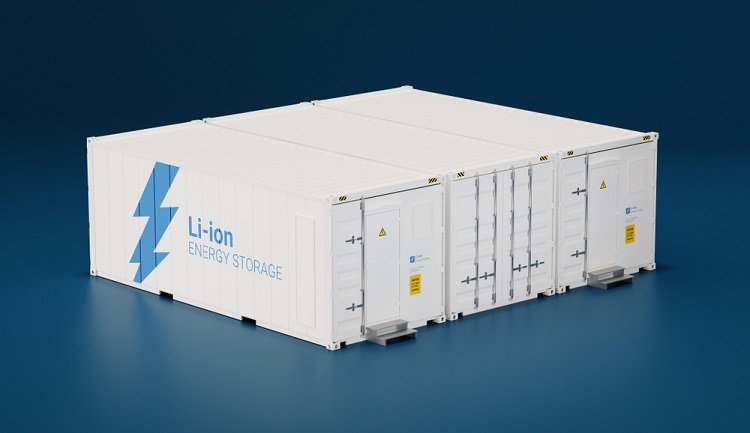The Rising Popularity of Lithium-Ion Battery Energy Storage Systems: Driving Factors and Challenges

23 Mar
2023
Lithium-ion battery energy storage systems (BESS) have been gaining traction in recent years as an effective solution for storing energy generated by renewable sources, such as solar and wind power. These systems store energy during periods of low demand and release it during peak demand, reducing the strain on the grid and promoting the use of renewable energy. The lithium-ion battery energy storage system market is expected to grow at a CAGR of 15% from 2022 to 2031, according to a report by Allied Market Research. Here, we take a closer look at the factors driving this growth and the challenges faced by the market.
One of the key drivers of the lithium-ion battery energy storage system market is the increasing adoption of renewable energy sources. As more and more countries commit to reducing their carbon footprint and transitioning to a greener energy mix, the demand for energy storage solutions is growing. Lithium-ion battery energy storage systems are an attractive option due to their high energy density, long cycle life, and low self-discharge rate. They can also be used in a variety of applications, from residential and commercial buildings to utility-scale projects.
Another factor driving the market is the declining cost of lithium-ion batteries. Over the years, the cost of lithium-ion batteries has been decreasing due to advancements in technology and economies of scale. This trend is expected to continue, making lithium-ion battery energy storage systems more affordable and accessible. Moreover, the growing demand for electric vehicles is also driving down the cost of lithium-ion batteries, as the automotive industry is a major consumer of these batteries.
Apart from these factors, government policies and incentives are also driving the adoption of lithium-ion battery energy storage systems. Many governments are offering tax credits, subsidies, and other incentives to encourage the installation of energy storage systems. For instance, in the United States, the Investment Tax Credit (ITC) offers a 26% tax credit for solar systems with battery storage installed before the end of 2022. In Europe, the European Union's Clean Energy for All Europeans package includes measures to promote energy storage, such as the development of a regulatory framework for energy storage and the establishment of a European battery alliance.
However, the lithium-ion battery energy storage system market is facing some challenges. One of the major challenges is the safety of lithium-ion batteries. Lithium-ion batteries are known to be prone to thermal runaway, which can lead to fires and explosions. To address this issue, manufacturers are investing in the development of safer battery chemistries and battery management systems that can detect and prevent thermal runaway.
Another challenge is the environmental impact of lithium-ion batteries. The production and disposal of lithium-ion batteries can have a significant environmental impact, as they require the extraction of raw materials and the use of energy-intensive processes. Moreover, lithium-ion batteries contain hazardous materials that can pose a threat to human health and the environment if not properly managed. To address this issue, manufacturers are exploring alternative materials and recycling technologies that can minimize the environmental impact of lithium-ion batteries.
In conclusion, the lithium-ion battery energy storage system market is growing rapidly, driven by the increasing adoption of renewable energy sources, declining battery costs, and government policies and incentives. While the market is facing some challenges, such as battery safety and environmental concerns, manufacturers are investing in research and development to address these issues. The growing demand for energy storage solutions is expected to drive the market further in the coming years, enabling the transition to a greener and more sustainable energy future.

Rosy Behera
Author's Bio- Rosy Behera holds a bachelor’s degree in Electrical and Electronics Engineering and now she is a content writer by profession. She loves to portray her thoughts and ideas with a nice command of words. Grabbing an audience with her creative write-ups is one of her biggest assets so far. Apart from writing, she is a certified “Odisi” dancer and has done Gardharva in Drawing, Painting, and Arts. She always explores new things through travel and is a big foodie.
Avenue: Entire Library membership of Allied Market Research Reports at your disposal
- Avenue is an innovative subscription-based online report database.
- Avail an online access to the entire library of syndicated reports on more than 2,000 niche industries and company profiles on more than 12,000 firms across 11 domains.
- A cost-effective model tailored for entrepreneurs, investors, and students & researchers at universities.
- Request customizations, suggest new reports, and avail analyst support as per your requirements.
- Get an access to the library of reports at any time from any device and anywhere.
Related Post
-
How are Submarine Cables Transforming Global Connectivity with Enhanced User Experience?
-
Endoscopy Procedures: Transformations in Techniques and Applications
-
AI-Powered Video Analytics: How the Product Actually Works for enterprises
-
Painting Robots: Transforming Precision Coating and Creative Applications
-
Innovations in Pharmacovigilance Systems Advancing Patient Safety
-
Understanding Edge Security: Keeping Data Safe Near the Source
-
Exploring the Use and Advancements of 3D Laser Scanners in Professional Applications
-
Reinforcing Industrial Controls with Smarter Tools and Training








